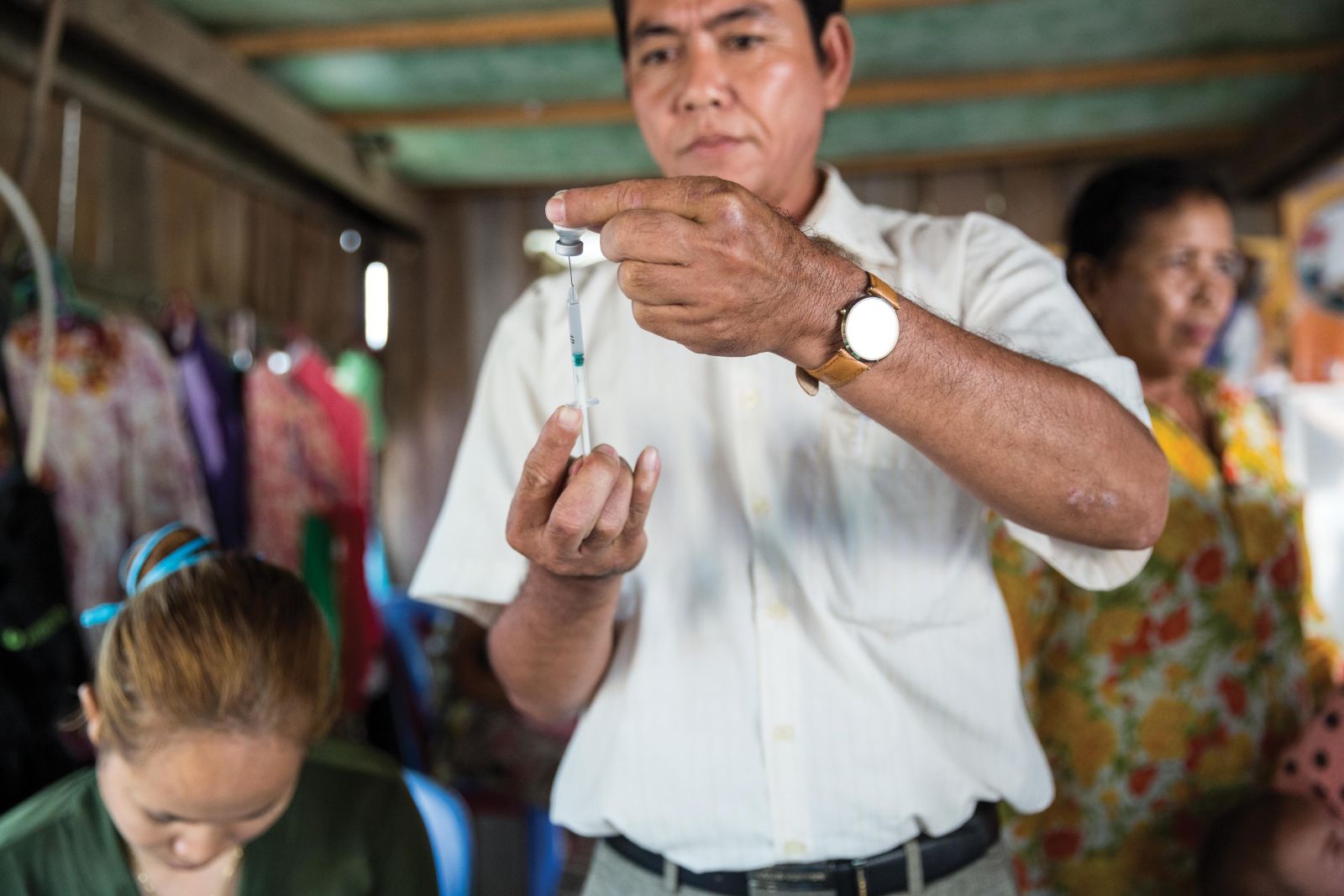In 2018 no one should die from diseases that we are able to treat or suffer from illnesses we are able to prevent. But saving lives and preventing unnecessary suffering isn’t only the humane thing to do – it makes sense economically as well.
The UK has been a global leader on immunisation through its support to Gavi, The Vaccine Alliance and the Global Polio Eradication Initiative (GPEI). Withdrawing or reducing such investments risks undermining or even reversing years of progress, with potentially severe impacts for the health of millions globally and their countries’ economies. The World Health Organisation (WHO) warns that if current immunisation efforts are not maintained it could lead to a negative economic impact of $59 billion and 2.4 million deaths in Africa alone. We cannot afford to look away, or take our foot off the pedal.
Take polio for example. Since the establishment of the Global Polio Eradication Initiative (GPEI) in 1988, cases of the disease have been reduced by 99.9%. The efforts of GPEI have not only had an enormous impact on reducing the number of cases of polio, but also saved an estimated US$27 billion in healthcare costs between 1985 and 2016. A polio-free world would reduce healthcare costs by up to $50 billion through 2035.

The WHO estimates that between 2001and 2020, immunisation will save US $350 billion in costs of illnesses in 73 low and middle-income countries whilst averting 20million child deaths. For every $1 invested in immunisation, we see a return of $16 to $44. Through immunisation, we can reduce the cost of treatment, contribute to children’s development, and increase the chance of their completing an education so they can get a job and contribute to society.
The rights to life and good health cannot not be afforded to some but not to others: we need to reach everyone everywhere. But investments cannot solely focus on immunisation. We must also invest in strengthening healthcare systems to ensure that the needs of all children are taken into account. The fewer people we leave behind, the greater the health and economic impact.
Investment in health makes sense, and leaving no one behind is not only the right thing to do, but will also help ensure that we have maximum impact. I am proud of the UK’s contribution to global health. We must now ensure that progress is not reversed, and continue to play a pivotal role in investing in immunisation and strengthening health systems.
Health is not only a human right – it is essential to the achievement of all the SDGs by 2030. As a cornerstone for all development – it’s a good deal all round.